In this section: Miriam Altman; Deborah Budlender, Zohra Dawood and more …
Miriam Altman
Executive Director
Centre for Poverty, Employment and Growth
Human Sciences Research Council
Tel: +27 12 302 2740
www.hsrc.ac.za
The centre run by Dr Miriam Altman at the HSRC develops innovative strategies to put employment centre stage in policy making and implementation. The research covers the macro-economy, trade and industry, government employment, labour markets and social policy. Special policy research thrusts from 2008 include youth employment, migration and food security. ‘Evidence-based employment scenarios” constitute the centre’s flagship, drawing together top decision- and opinion-makers in business, labour, government and academia to identify how to halve unemployment and poverty. Altman is a leading expert in employment and industrial policy, with 20 years’ research and practical experience in economic development issues, and having produced over 80 publications. Her work concentrates on framing public and private strategies to make the economy and industries more employment-oriented. She has a BA in economics from McGill University, an MPhil from the University of Cambridge and a PhD in economics from the University of Manchester.
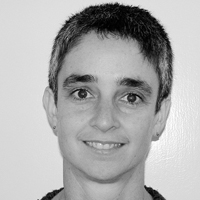
Deborah Budlender
Specialist Researcher
Tel: +27 21 447 9852
www.case.org.za
Deborah (Debbie) Budlender has worked in the area of social policy research with the Community Agency for Social Enquiry (Case), a non-governmental organisation, since 1988. She was the overall coordinator of the South African Women’s Budget Initiative; South Africa’s example in the area of gender-sensitive budgets stimulated similar initiatives in a range of other countries. Budlender has served as consultant to NGOs, governments, parliamentarians and donors in more than 35 countries in Africa, Asia, Eastern Europe and the Americas. She holds a BA honours in economics, an MA in industrial sociology, and a BSc in computer science and mathematics and has an honorary doctorate in social sciences from the University of KwaZulu-Natal. She is a member of the council of the University of Cape Town.
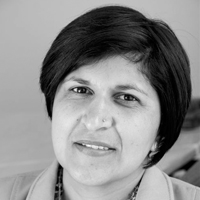
Zohra Dawood
Executive Director
Open Society Foundation for South Africa
Tel: +27 21 683 3489
www.osf.org.za
Zohra Dawood was appointed executive director of the Open Society Foundation in 2001 and is responsible for developing policies and programmes, as well as fostering local and international partnerships. She joined the Open Society Institute in 1999 and has been actively involved in the promotion of human rights and international justice, as well as social, economic and legal reform. In 2006, she was appointed country director to head up the institute’s democratic efforts in Indonesia. Dawood served as deputy director for restitution policy and implementation in the department of land affairs and agriculture. She was involved in drafting land legislation for the post-apartheid government and served as an advisor to cabinet members under Nelson Mandela’s presidency. Prior to this, Dawood worked for a decade as chief researcher at the land rights organisation, the Surplus People Project, and advocated for agrarian reform and restitution. She holds degrees in law and African government and administration, as well as a master’s degree in economic history.
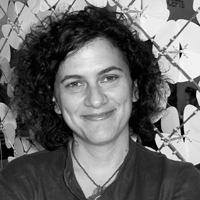
Erica Elk
Executive Director
Cape Craft and Design Institute
Tel: +27 21 460 3982
www.capecraftanddesign.org.za
T
he founding director of the Cape Craft and Design Institute, launched in 2001, Erica Elk has promoted the establishment of similar operations in the Eastern Cape, North West and Gauteng as well as farther afield in the Southern African Development Community region.
The Institute provides support to over 1 300 micro craft enterprises, drawing them into a network of over 1 500 retailers, agents and public and private sector partners through its enterprise, product and market developmentprogrammes. It is widely recognised as a pioneer in the field of craft sector development and business growth.
A former president of the National Union of South African Students, she holds a fine arts degree from the University of the Witwatersrand. She is on the curator panel of the Design Indaba Expo and the Creative Cape Town Reference Group and is a board member of the Western Cape chapter of the Visual Arts Network of South Africa. She is the chairperson of the arts and culture chamber of the MAPPP-Seta.
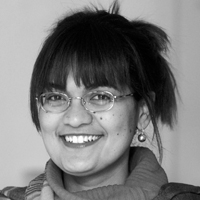
Judith February
Manager: Political Information and Monitoring Service
Institute for Democracy in South Africa
Tel: +27 21 467 5600
www.idasa.org.za
Judith February focuses on corruption and its impact on governance, parliamentary oversight, constitutional law monitoring, institutional design and general political analysis in her post at the Institute for Democracy in South Africa (Idasa), and is a regular commentator in the media on politics in South Africa. She obtained BA (law), LLB and LLM (commercial law) degrees at the University of Cape Town, was admitted as an attorney and practised law in Cape Town for several years before
joining Idasa in 2000. She does consultative work for a New York-based group as part of the Stability Index on 25 developing countries. She is a member of the Council for Higher Education task teamon academic freedom and is on the boards of the Goedgedacht Forum for Social Reflection and the Parliamentary Monitoring Group.
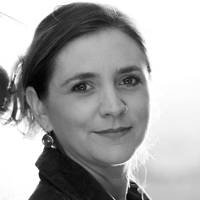
Ruth Hall
Senior Researcher: Programme for Land and Agrarian Studies
South African Institute for Distance Education
School of Government
Tel: +27 21 959 3733
www.plaas.org.za
Ruth Hall, a senior researcher at the Institute for Poverty, Land and Agrarian Studies (Plaas) in the School of Government at the University of the Western Cape, is reading for her doctorate in the faculty of politics at the University of Oxford and working on a dissertation on the politics of land reform in post-apartheid South Africa, 1990 to 2004.
She is a pundit on land redistribution policy and practice and also works on issues of small farmer development and food security in South and Southern Africa. Hall has acted as an adviser to the Department of Land Affairs. She has authored or co-authored 32 publications, mainly about the socio-political impact of land reform in South Africa, and has edited two books: Another Countryside? Policy Options for Land and Agrarian Reform in South Africa, published this year, and The Land Question in South Africa: The Challenge of Transformation and Redistribution (2007, co-edited with Lungisile Ntsebeza).
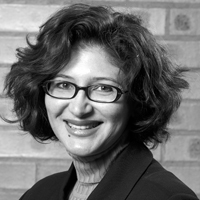
Claudia Manning
Non-executive Director
Development Bank of Southern Africa
Tel: +27 11 884 0414
www.dbsa.org
Dr Claudia Manning has worked in infrastructure development programmes in the public sector for several years, both in structuring and in financing infrastructure investments. She is the co-founder and executive director of Sangena Investments, which owns a stake in a number of companies, including Tongaat Huletts. Manning serves on the Development Bank of South Africa board of directors and is a non-executive director on the boards of a construction company and a civil engineering company. She holds a DPhil in development studies from the University of Sussex.
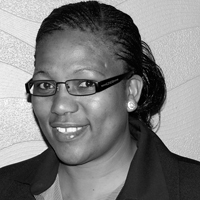
Petronilla Ndebele
Head of Operations
Southern Africa Trust
Tel: +27 11 318 1012
www.southernafricatrust.org
Petronilla Ndebele joined the Southern Africa Trust in June 2006 as communications and partnerships manager. The trust is an independent non-profit agency that supports deeper and wider regional engagement to overcome poverty in Southern Africa. Ndebele spent seven years with the Southern African Development Community secretariat and eight years in the news and current affairs department at the Zimbabwe Broadcasting Corporation. In 1999 she received an award for excellence in business and economic reporting from the Federation of African Media Women Zimbabwe. She has served on the board of Worldview Botswana, an NGO focusing on development communication, and adjudicated in the Botswana Media Awards run by the Media Institute of Southern Africa. She holds a bachelor of business administration degree specialisation in marketing communications from the Graduate School of Marketing, Institute of Marketing Management in South Africa and an MA in international communications and development, from the City University in the United Kingdom.
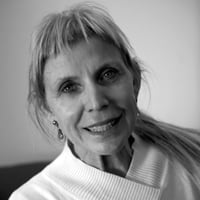
Dren Nupen
Chief Operating Officer
Kgontsi Holdings (Pty) Ltd
Tel: +27 11 788 5673
When the ANC chose new leaders at the 2007 conference in Polokwane, Dren Nupen was the one printing ballot papers and counting the votes. She has had extensive experience in running elections, having been the director of the elections and balloting unit of the Independent Mediation Service of South Africa from 1989 to 1996 and heading the Electoral Institute of Southern Africa until 2002. She entered politics while a student at the University of Cape Town through the trade union movement and was involved in anti-apartheid activities in South Africa and abroad. She held positions in the Open Society Institute and Transparency International. Kgontsi Holdings, where she is chief operating officer, is an investment company seeking opportunities in South Africa and Africa in resources, property, information and communication technology and healthcare.
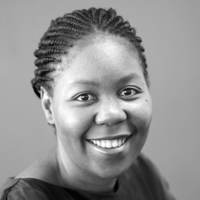
Sisonke Msimang
Executive Director
Open Society Initiative for Southern Africa
Tel: +27 11 590 2600
www.osisa.org
Sisonke Msimang controls the strings on a R100-million purse that literally can change the world. As executive director of the Open Society Initiative for Southern Africa (Osisa), Msimang offers grants to NGOs involved in human rights and the strengthening of democracy and bears responsibility for the initiative’s overall strategic direction. She assumed the post in 2008 after two years as a programme officer for George Soros’s philanthropic foundation, specialising in HIV/Aids management across nine countries.
Msimang obtained a BA in political science and communication studies at Macalester College in the United States. A job as HIV/Aids researcher was followed by a stint as a research assistant on a project aimed at improving maternal health in poor communities in inner city Oakland, California. Msimang was born to exiled parents in neighbouring Swaziland, but after the dawn of democracy she returned to South Africa and managed a capacity-building programme for the Australian Agency for International Development to provide technical assistance to South Africa’s new government.
She moved on to the gender institute at the University of Cape Town, completed her master’s degree in political studies there and joined the United Nations Women’s Development Fund based in New York. Most recently she served as gender adviser: East and Southern Africa at UNAids, based in Johannesburg. Msimang has published a number of articles and book chapters on gender, HIV and Aids and human rights, in publications such as the Southern African feminist journal Agenda, Oxfam’s Gender and Development and Interfund’s quarterly journal Development Update.<
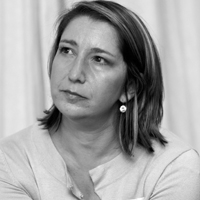
Martine Schaffer
Managing Director
Homecoming Revolution
Tel: +27 11 327 3668
www.homecomingrevolution.co.za
ver the past five years, Martine Schaffer has become one of the most vocal supporters of skills retention in the country. The born and bred Durbanite joined Homecoming Revolution in 2004 when funding was granted. Since then, she has turned a small communications campaign into an internationally recognised service-led organisation which works closely with private and public companies, parastatals and the public sector to help bring South African skills back to South Africa.
Schaffer studied at the Hebrew University of Jerusalem, landing in London in 1989 where she ended up staying for 14 years working in various marketing capacities in the retail industry and as business development director for a lifestyle management and concierge company. In 2003, Schaffer returned to South Africa where she was head-hunted to head up the Homecoming Revolution. In 2007, she participated in the Imagination Leadership Course at the Gordon Institute of Business Science and is currently completing Common Purpose International’s leadership programme.
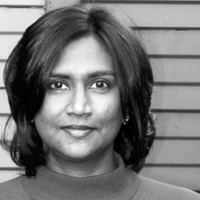
Beulah Thumbadoo
Director
Beulah Thumbadoo & Associates
Tel: +27 11 648 8170
Beulah Thumbadoo began her career as a reading activist who turned her one-woman operation, Everyone’s Reading in Africa (ERA), into a national reading campaign, Masifunde Sonke. She was elected an Ashoka fellow in 2000.
Since then, she has brought high-level project management to both national and international endeavours. She has headed research/ writing projects for the Gordon Institute of Business Science and the department of arts and culture and supported Unesco’s worldwide literacy initiative for empowerment and Ashoka’s fellowship and venture processes. Thumbadoo is completing a master’s degree in applied ethics at the University of the Witwatersrand with emphases on ethics in relation to international affairs, the value of life and the environment.
She is the author of two books, Making Reading Matter: Guidelines< for selecting, developing and disseminating easy readers for adults and From Dust to Diamonds: Stories of South African Social Entrepreneurs, and the publisher of The Face of the spirit: Illuminating a century of essays (100) by South African women.
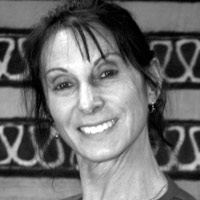
Ilona Tip
Senior Adviser
Electoral Institute of Southern Africa (Eisa)
Tel: +27 11 482 5495
www.eisa.org.za
Ilona Tip is rarely to be found at her desk; she spends most of her life flying around the continent training, participating in workshops and putting into practice programmes she has helped to develop in democracy, human rights education, voter education, electoral observation, electoral conflict management and political party agent training.
Her title — senior adviser, democracy, conflict management and electoral education — is almost as unwieldy as her job. Tip has a higher primaryschool teaching diploma from the Johannesburg College of Education and a BA in political science and industrial sociology from the University of the Witwatersrand and Unisa. She was one of the founders of Eisa in 1996 and has been a member of election observer missions throughout Africa and farther afield.